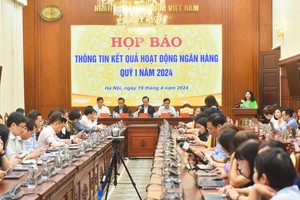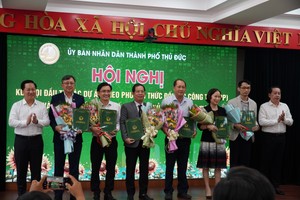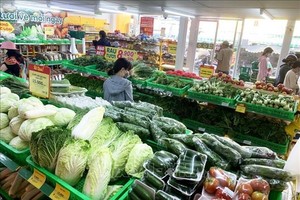 A worker of Chanh Duong Paper Company is treating waste into coal (Photo: SGGP)
A worker of Chanh Duong Paper Company is treating waste into coal (Photo: SGGP)
A green economy is defined as low carbon, resource efficient and socially inclusive. A green economy generates increasing prosperity while maintaining the natural systems that sustain us
Many traditional export markets of Vietnam have put plastic products of all kinds under strict control and restricted use. The European market has shown that from the beginning of November, the Portuguese Government has applied a new law on environmental protection.
Accordingly, the country banned the sale of single-use plastic products. Moreover, the European country planned to reduce the use of plastic cups for drinks, plastic packaging for instant foods by 80 percent by the end of 2026 and continue to reduce 90 percent by the end of 2030.
Talking about this matter, the representative of Vietnam's trade counselor in the European market said that these new regulations are parts of the green economic development policy of European countries.
Prior, on June 2019, the Council of the European Union had a general regulation on reducing the use of products made from plastic. Regarding this issue, the Ministry of Natural Resources and Environment also confirmed that Vietnam has officially signed a commitment with the world on reducing plastic emissions because presently, Vietnam is listed as one of the top 5 countries contributing to the world’s unmanaged plastic waste into the environment with 1.8 million tons a year. In particular, Vietnamese people produce 30 billion plastic bags annually.
Huynh Minh Nhut, Director of Ho Chi Minh City Urban Environment Company, said that dwellers in Ho Chi Minh City produce around 4 million tons of waste for their daily activities a year. However, most of the plastic waste is not sorted and recycled but buried with domestic waste.
Therefore, the Southeast Asian country is committed to plastic waste reduction by developing a waste recycling market and banning people from using plastic waste while shopping. The two solutions are expected to be helpful for the growth of the country as well as for the protection of the country’s marine environment.
On the other hand, many export enterprises said that the "green" factor in production towards a circular economy has been applied by many export markets.
Vu Duc Giang, Chairman of the Vietnam Textile and Apparel Business Association, said that to win export orders in the competition with other countries, domestic enterprises need to fully meet environmental safety requirements including the reduction of fossil energy – the most popular one, the rate of application of clean energy sources, the ability to recycle and reuse wastewater in particular and waste generated in production activities.
He added enterprises will lose the opportunity to get into the export market if they violate one of the environmental regulations such as discharge of waste causing environmental pollution or failure to apply waste recycling solutions
Tran Viet Anh, General Director of Nam Thai Son Company, affirmed that the company had to reinvest in the production line system to have a more sustainable approach to the US market. Accordingly, to be eligible for the US market, the company’s self-destructive plastic products must be environmentally friendly.
At the Vietnam - European Union (EU) Trade Forum 2021 with the theme "Strength for trade and investment cooperation in the new normal context", Ambassador Giorgio Aliberti, Head of the EU Delegation to Vietnam said that consumers in European countries are increasingly interested in factors including environment, labor and corporate social responsibility - a self-regulating business model that helps a company be socially accountable to itself, its stakeholders, and the public.
Therefore, Vietnamese companies should meet social standards which will help increase competitive advantage, protect and improve brand awareness of businesses, as well as build and strengthen trust with partners and customers. This can be seen as an enterprise's commitment to business ethics, contributing to economic, social, and environmental development.
Currently, more than 20 substances are prohibited and restricted for production, import, placing on the market, use, recovery, recycling, rehabilitation, and destruction by European law. Any exporters failing to meet these standards will not have the opportunity to enter this market. Many other markets around the world have been adopting the prohibition over chemicals.
Following that, many Vietnamese enterprises that are exporting goods to difficult markets such as the United States, Europe, Japan, and South Korea have supposed that enterprises must promptly innovate production to be safe from green barriers to trade.
Accordingly, the green factors are comprised of good implementation of environmental protection, waste treatment, recycle and reuse waste to minimize waste generation. Moreover, green factors in exports also mean exporters should not use banned chemicals or leave chemical residues in the product.
Deputy Director of the Vietnam Sanitary and Phytosanitary Notification Authority and Enquiry Point Ngo Xuan Nam emphasized that export markets' changes in regulations related to food safety, environment, labor have been constant; thus, the enterprise's justice department ought to grasp them and promptly update in the website because failure to comply with the regulation could lead to Vietnamese exports being rejected at ports.
























